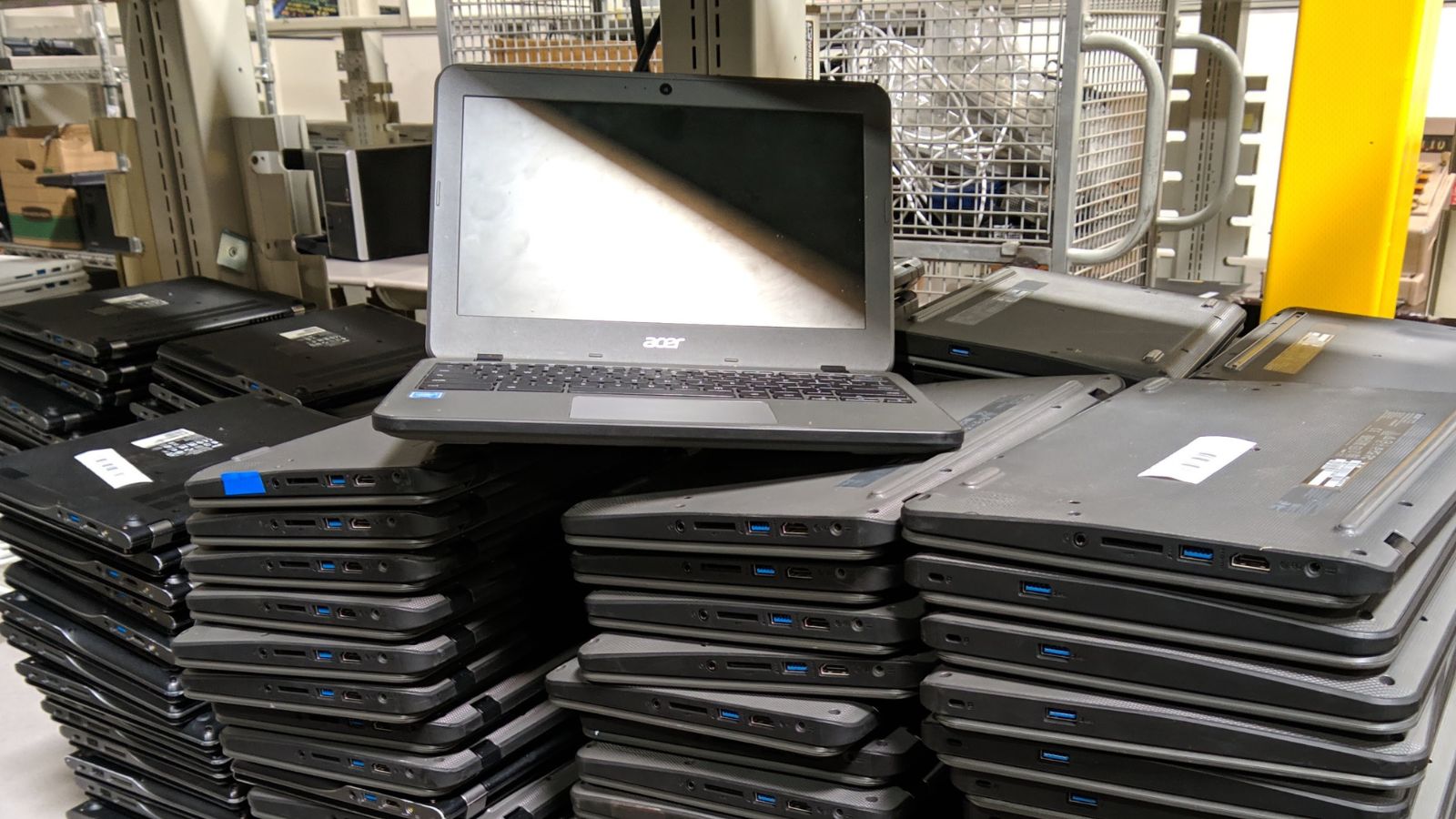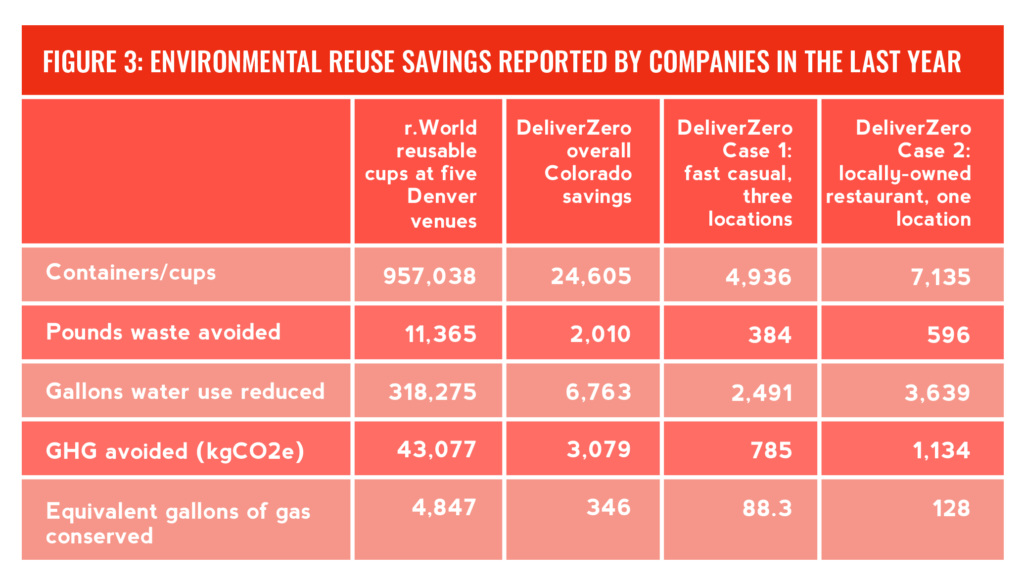
Thank Google for longer lasting Chromebooks
Colorado has a waste problem. That's why it's critical that on a state and local level we support efforts to reduce, reuse, recycle and compost.
Say Thanks
Executive Director, CoPIRG Foundation
Senior Policy and Research Associate, Eco-Cycle
Campaigns Coordinator, Eco-Cycle
Reduce, Reuse, Recycle . . . we’ve likely all heard of the “3 R’s,” foundational to a Zero Waste, environmentally sustainable future. It would be reasonable to assume the 3 R’s would be second nature in Colorado, given our love for the state’s natural beauty, its parks and open spaces, mountains, rivers, and wildlife. But, surprisingly, the state of Colorado has a lot of work to do when it comes to reducing, reusing, recycling, and composting our waste stream.
Colorado’s recycling and composting rate continues to stagnate at a mere 16%, half the national average of 32%.
To turn the tide, we can’t rely solely on individual efforts. It’s time for systemic change statewide—a shift necessary to prevent waste right across our economy.
The negative impacts of all of our stuff begins long before it reaches our homes. From natural resource extraction to disposal, the entire life cycle of the products we consume creates pollution and climate-warming greenhouse gas (GHG) emissions.
There are growing efforts across Colorado to reduce the overall materials that are created for our consumption and use, and are then discarded—particularly the reduction of single-use or disposable products and packaging — helping to keep us from drowning in the flood of often unnecessary disposable stuff that comes wrapped, packed, and tied to what we buy. Reuse, too, is on the rise as a systems replacement for single-use products of all kinds—even recyclables and compostables.
Systemic change is coming with regard to that third R, recycling. Six years of reporting on Colorado’s consistently low recycling rate has gotten the attention of the public and of state and local decision-makers, resulting in new programs and policy changes statewide that will ensure that more cans, bottles, boxes, and packaging will be returned to our local supply chains for remanufacturing and that all Coloradans have convenient access to recycling at free of charge.
There is still a lot of work ahead in implementing these policies successfully, and our future reports will continue to track that progress.
The third R also refers to recycling organics through composting. Communities statewide are increasingly eager to initiate or expand compost programs in recognition of the critical importance of diverting organics from landfills to reduce landfill-generated methane emissions and of utilizing compost to enrich local soils and increase their carbon sequestering impact.
This surge in public interest has brought both challenges and opportunities, supporting growth for Colorado’s entrepreneurial compost businesses, and revealing valuable lessons about necessary infrastructure and policies to scale up access to compost services and the making of quality compost for agricultural use.
Reduce the need for a product or its packaging in the first place. This R is the highest priority in the Zero Waste hierarchy. If we don’t make a product, we don’t need to extract natural resources and can avoid the associated negative environmental and social impacts.
Redesign products to use fewer resources, few-to-no toxins, and higher recycled content. Design should prioritize longevity of use, repair, and ultimately recycling.
Reuse already extracted resources, keeping materials and products in circulation for as long as possible. Establishing reuse systems can help eliminate the need for single-use items.
Refill reusable containers. Rather than using single-use items (even those that are recyclable or compostable), durable, reusable containers are refilled for everything from condiments and milk in schools to reuse/refill to-go containers at restaurants and returnable/washable containers at reuse/refill stores.
Repair products and keep them in use. For some products, this requires changing systems to guarantee the right to repair products.
Recycle transparently and authentically, capturing products at the end of their useful lives and turning these materials into new products that can be recycled yet again. Composting is essentially the recycling of organic matter, including food scraps and yard trimmings.
There are a number of ways the state and local communities are leading the way toward less waste and fostering a circular economy.
Colorado’s Plastic Pollution Reduction Act, which will phase out single-use plastic bags and polystyrene cups and containers, and Colorado’s Agriculture Right to Repair bill, which ensure farmers have access to the tools, parts, and software they need to fix their equipment, go into effect on January 1, 2024.

Reported benefits from r.World and DeliverZero reuse productsPhoto by Eco-Cycle | Used by permission
Danny has been the director of CoPIRG for over a decade. Danny co-authored a groundbreaking report on the state’s transit, walking and biking needs and is a co-author of the annual “State of Recycling” report. He also helped write a 2016 Denver initiative to create a public matching campaign finance program and led the early effort to eliminate predatory payday loans in Colorado. Danny serves on the Colorado Department of Transportation's (CDOT) Efficiency and Accountability Committee, CDOT's Transit and Rail Advisory Committee, RTD's Reimagine Advisory Committee, the Denver Moves Everyone Think Tank, and the I-70 Collaborative Effort. Danny lobbies federal, state and local elected officials on transportation electrification, multimodal transportation, zero waste, consumer protection and public health issues. He appears frequently in local media outlets and is active in a number of coalitions. He resides in Denver with his family, where he enjoys biking and skiing, the neighborhood food scene and raising chickens.
Senior Policy and Research Associate, Eco-Cycle
Campaigns Coordinator, Eco-Cycle